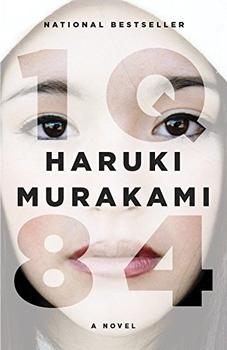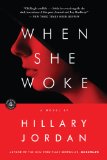Summary | Excerpt | Reading Guide | Reviews | Beyond the book | Read-Alikes | Genres & Themes | Author Bio

All my adult life, I've been a voracious reader. Most of us who are construct our own system of rules, so to speak, around our reading. Are you a finish-it-at-all-costs reader, or a give-it-50-pages-then-I'm-out reader? Do you squeeze reading in where you can – on the train, doctor's office, waiting in line – or do you need dedicated time and space? Is YA just for young adults? Books, or e-readers, or both? What do you read for?
For me, the answer to this last question is: story. Story reigns supreme. If it doesn't ring true, isn't airtight within the rules of its own universe, I can't continue, no matter how compelling the characters, how funny or wrenching or historically relevant the various cogs may be. There are exceptions to this rule – a few writers I love, and gorge on, simply for their writing; they could spend eleven pages describing a teacup and I'd be on board, salivating for more. The list is short: David Foster Wallace, Gertrude Stein, Cintra Wilson. And now: Fiona Maazel.
Let me clarify: Woke Up Lonely is one hell of a good story. Thurlow Dan is the leader of the Helix, an internationally renowned "therapeutic community" suspected, by most outsiders, to be a cult. His ex-wife, Esme, is a government operative assigned to infiltrate and dismantle the group. She culls four seemingly random individuals, gives them nebulous jobs in the Department of the Interior, and sends them to the Helix headquarters in Cincinnati to execute the mission. Things go badly. Questions abound – What is Esme's real intention? Is the Helix really in bed with North Korea? How are all these people related, and why are they all so unhappy?
See, the goal of the Helix is to cure loneliness. Thurlow, "in lieu of this fabled thing called happiness," decided that the only way to survive the pain, trauma and emotional wreckage that come from having to hitch your life to other people's, is to talk about it. Helix groups get together, talk to each other about their problems, and listen. Simple. Or at least it sounds simple. But Maazel's characters have looked down the rabbit hole of intimacy, and it's not pretty. Anne-Janet, one of Esme's recruits, puts it bluntly: "Forget the barter of secrets and memories in the afterglow of sex, forget the dating and twaddle and rollback of your defensive line until you either had to love this person or kill yourself." She knows, as all these characters have learned, or will learn, that, "The past could live on in you with an energy you could never muster for the life that was happening to you now."
I will not speak of the myriad plot twists and surprises, but suffice to say there are underground cities, people with multiple identities, chapters that unpack themselves ingeniously like the old circus act of clowns piling out of a car.
What I really want to tell you about is Maazel's writing, because as fun and sophisticated as her story is, it is her language that has put her on my short-list of literary heroes. It's the way she uses words: Men "planked across the ruin of their private lives;" a woman with "a face arranged like an open cash register;" "Milanos on a paper plate, arranged in a crop circle;" the afternoon sky "a baby's face swelled with the tantrum gathering force in her lungs." Even a cheese plate, the cheese plate we've all seen a million times, is revelatory in her hands: "Nine kind of curd, sliced thin. Those rounds with the red and yellow wax. Antipasto and toothpicks with tinsel finials half-mooned by a swath of wheaty biscuits."
At one point, Olgo, another of Esme's fated infiltrators, has been kidnapped and driven out to the middle of nowhere. It's nighttime, dead of winter, and Olgo's captor has just pulled up to a converted trailer:
"Olgo's breath purled from his lips. A man across the street was shoveling snow, wearing orange camouflage gloves and a trapper hat. There was music in the air, guitar licks, and Olgo thought he saw a woman fat as a yak vacuuming inside. He surveilled their lawn and wished he hadn't: hanging from a tree turned gibbet was a deer carcass with skin rolled down from the neck, over a brick that gave purchase to a rope, and at the end of this rope, two boys, seven or right, heave-hoeing amid the steam still lifting from the animal's flesh."
I would go anywhere with Maazel. Whether you're as enchanted by her language as I am or not (though I promise, she will enchant you), Woke Up Lonely is a spectacular novel. You must read it.
Woke Up Lonely might be called a "cult" novel; it is perhaps a comment on a new kind of cult (see 'Beyond the Book'). Cults, at least the most infamous ones, and certainly in our cultural imagination, are usually run more or less like monotheistic religions. With Woke Up Lonely, Maazel seems to be saying that in the age connectedness, political disillusionment, reality television, endless wars fought by machines, when we've never been, technically speaking, closer to each other, people are more desperate than ever to feel close. And in this state, people will buy anything. We don't need a new god or a new belief system or a strict orthodoxy; the promise that we're not alone may be enough for us to abandon our singular lives and join the group. The next great western religion might not be a "religion" as we know it at all. It might simply be...us.
![]() This review was originally published in The BookBrowse Review in June 2013, and has been updated for the
April 2014 edition.
Click here to go to this issue.
This review was originally published in The BookBrowse Review in June 2013, and has been updated for the
April 2014 edition.
Click here to go to this issue.

If you liked Woke Up Lonely, try these:

by Haruki Murakami
Published 2013
A love story, a mystery, a fantasy, a novel of self-discovery, a dystopia to rival George Orwell's - 1Q84 is Haruki Murakami's most ambitious undertaking yet.

by Hillary Jordan
Published 2012
When She Woke is a fable about a stigmatized woman struggling to navigate an America of a not-too-distant future, who embarks on a path of self-discovery that forces her to question the values she once held true and the righteousness of a country that politicizes faith.
Talent hits a target no one else can hit; Genius hits a target no one else can see.
Click Here to find out who said this, as well as discovering other famous literary quotes!
Your guide toexceptional books
BookBrowse seeks out and recommends the best in contemporary fiction and nonfiction—books that not only engage and entertain but also deepen our understanding of ourselves and the world around us.